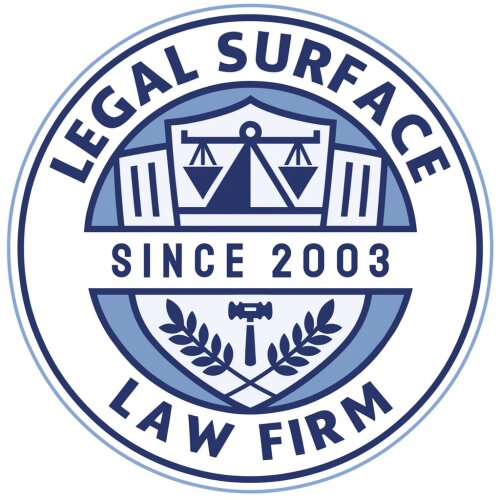Best Discrimination Lawyers in Srinagar
Share your needs with us, get contacted by law firms.
Free. Takes 2 min.
List of the best lawyers in Srinagar, India
About Discrimination Law in Srinagar, India
Discrimination refers to unjust or prejudicial treatment of individuals or groups based on characteristics such as religion, caste, gender, disability, race, or other protected attributes. In Srinagar, as in the rest of India, discrimination can manifest in various settings including workplaces, educational institutions, housing, and public services. The legal framework in India offers protection against such discriminatory practices, ensuring equality and justice for all citizens, as enshrined in the Indian Constitution and relevant statutory laws.
Why You May Need a Lawyer
Legal assistance may be necessary in discrimination cases due to the complexity and sensitivity of such matters. Common scenarios where you might require a lawyer include:
- Facing discrimination at your workplace due to religion, gender, or disability.
- Denial of educational opportunities or admission based on caste or religion.
- Experiencing housing discrimination as a tenant or buyer.
- Being refused public services or facilities on discriminatory grounds.
- Seeking compensation or redress for emotional or financial harm suffered due to discrimination.
- Needing to navigate complex complaint procedures with authorities or commissions.
Local Laws Overview
While Indian national laws apply in Srinagar, the unique socio-cultural and legal context of Jammu and Kashmir informs local approaches to anti-discrimination. The following legislative frameworks are key:
- The Constitution of India: Articles 14, 15, 16, 17, and 21 guarantee equality before law and prohibit discrimination based on religion, race, caste, sex, or place of birth.
- The Scheduled Castes and Scheduled Tribes (Prevention of Atrocities) Act, 1989: Protects members of SC/ST communities from discrimination and violence.
- The Rights of Persons with Disabilities Act, 2016: Prohibits discrimination on the basis of disability in employment, education, and access to public facilities.
- The Protection of Civil Rights Act, 1955: Addresses discrimination and untouchability practices.
- The Jammu and Kashmir Reorganisation Act, 2019: Extended many central laws to the Union Territory, strengthening legal recourse in discrimination cases.
Legal proceedings can be initiated in courts, or through government bodies such as the National Human Rights Commission or National Commission for Minorities. Local enforcement may sometimes be influenced by the region’s unique social factors.
Frequently Asked Questions
What constitutes discrimination under the law in Srinagar?
Discrimination is unfair or unequal treatment of a person based on protected characteristics such as caste, religion, sex, disability, or race, especially in public, educational, employment, or housing contexts.
Can I file a complaint if I face workplace discrimination?
Yes, you can file a complaint with your employer’s grievance cell, the local labor office, or approach the court directly. In some cases, you can also reach out to the National or State Human Rights Commissions.
Are there specific protections for women against discrimination?
Yes, Indian laws protect women from discrimination in employment, education, and public life. The Equal Remuneration Act, Sexual Harassment of Women at Workplace Act, and constitutional provisions provide comprehensive protection.
What are my rights if I face discrimination in educational institutions?
You have the right to equal educational opportunities. Discrimination by schools or colleges based on caste, religion, or other protected grounds is unlawful and can be challenged through authorities or courts.
What evidence do I need to prove a discrimination case?
Relevant documents, written communications, witness testimonies, and audio or video recordings can support your case. Consulting a lawyer can help you gather and present evidence effectively.
Is caste discrimination still prevalent in Srinagar?
While openly reported cases may be fewer than in some other regions, caste-based discrimination can still occur. Legal provisions exist for redressal, and affected persons are encouraged to pursue their rights.
How are complaints of religious discrimination handled?
Complaints can be made to local police, human rights commissions, or minority commissions. Authorities are required to investigate and take appropriate action as per the law.
What legal remedies are available if I win my case?
Remedies may include compensation, reinstatement of employment or services, official apologies, directions to stop discriminatory practices, and punitive actions against perpetrators.
How long does it take to resolve a discrimination case?
The timeframe varies based on the complexity of the case, available evidence, and the legal forum chosen. Some cases may conclude within months, while others could take years.
Can I approach government bodies without a lawyer?
Yes, you can file complaints yourself. However, legal assistance often helps in presenting your case most effectively and understanding procedural requirements.
Additional Resources
Several governmental and non-governmental organizations work to protect individuals from discrimination in Srinagar:
- National Human Rights Commission (NHRC)
- National Commission for Minorities (NCM)
- National Commission for Women (NCW)
- National Commission for Scheduled Castes/Scheduled Tribes
- Jammu and Kashmir State Human Rights Commission (where applicable)
- District Legal Services Authority, Srinagar
- Legal Aid NGOs and Bar Associations
Next Steps
If you believe you have encountered discrimination in Srinagar, here’s how you can proceed:
- Document the Incident: Collect evidence, make note of dates, and gather witness details where possible.
- Consult a Lawyer: Legal professionals can offer tailored advice and assess your case’s merits.
- Approach Relevant Authorities: File a complaint with your employer, educational institution, or local or national commissions.
- Consider Mediation or Legal Action: Depending on the severity and your goals, you may choose to mediate or pursue legal proceedings in court.
- Seek Support: Reach out to support groups or local NGOs for guidance and emotional assistance.
Understanding your rights and the legal remedies available can empower you to challenge and prevent discrimination. Early legal advice is crucial to navigating the process effectively and securing justice.
Lawzana helps you find the best lawyers and law firms in Srinagar through a curated and pre-screened list of qualified legal professionals. Our platform offers rankings and detailed profiles of attorneys and law firms, allowing you to compare based on practice areas, including Discrimination, experience, and client feedback.
Each profile includes a description of the firm's areas of practice, client reviews, team members and partners, year of establishment, spoken languages, office locations, contact information, social media presence, and any published articles or resources. Most firms on our platform speak English and are experienced in both local and international legal matters.
Get a quote from top-rated law firms in Srinagar, India — quickly, securely, and without unnecessary hassle.
Disclaimer:
The information provided on this page is for general informational purposes only and does not constitute legal advice. While we strive to ensure the accuracy and relevance of the content, legal information may change over time, and interpretations of the law can vary. You should always consult with a qualified legal professional for advice specific to your situation.
We disclaim all liability for actions taken or not taken based on the content of this page. If you believe any information is incorrect or outdated, please contact us, and we will review and update it where appropriate.









